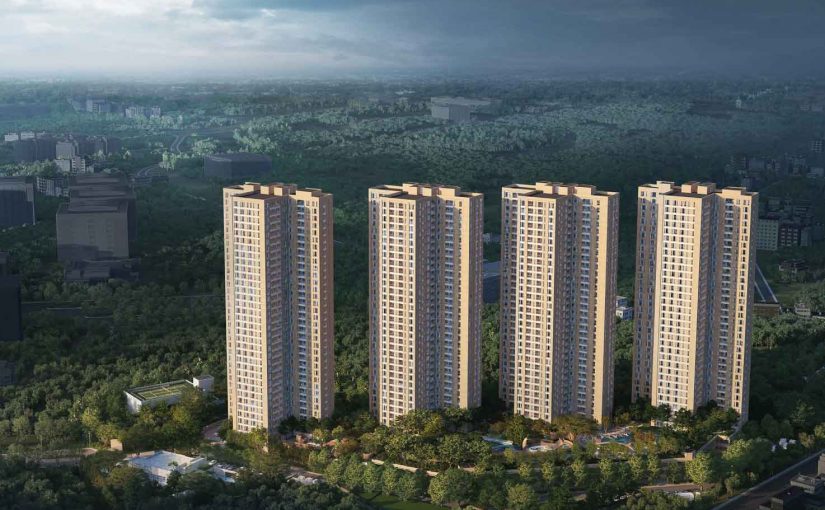By
|
Getting your Trinity Audio player ready...
|
You would’ve heard people use the word ‘deed’ quite commonly in real estate and in matters related to law. During the purchase and sale of flats, a deed is a required document, A deed is a signed legal document that transfers the ownership of an asset-like property to a new owner. Thus in common law, a deed meaning and definition is any legal instrument in writing. It passes, affirms, or confirms an interest, right or property and its owner signs, attests, delivers, and in some jurisdictions, seals.
A deed has greater validity in the eyes of the law and is less rebuttable than other documents. Its common function is to transfer the ownership of property or two vehicles between two parties.
Deed meaning and purpose

The purpose of a deed is to transfer a title, the legal ownership of a property or asset. Usually from one person or company to another especially when buying flats such as residential flats near Joka Metro and commercial areas such as office space in kolkata.
Now that we’ve understood a deed meaning, let us look at the requirements for a deed.
Requirements of a Deed
For a deed to be valid and enforceable, a deed must meet the following requirements;
- It must state on its face that it is a deed, using wording like “This Deed…” or “executed as a deed”.
- It must indicate that the instrument itself conveys some privilege or thing to someone.
- The grantor must have the legal ability to grant the thing or privilege, and the grantee must have the legal capacity to receive it.
- A grantor executes it in presence of a number of witnesses or ‘instrumentary witnesses’ (Thus it is now in solemn form).
- In some jurisdictions, a deed requires a seal. Originally, person related to the deed and signatures did not need to sign if deeds had a seal, but that is not the case anymore in most jurisdictions. So the signatures of the grantor and witnesses are primary.
- It must be delivered to (delivery) and, in some jurisdictions, accepted by the grantee (acceptance)
The conditions attached to the acceptance of a deed are known as covenants.
In other words, a deed to real property must be properly filed with the local government. Without this, its owner will not be able to sell it, refinance it, or obtain a line of credit on it. This is usually done by the property buyer’s attorney or title insurance company.
For example, when buying flats in Kolkata, the property owner will transfer the property to someone using a deed.
Understanding a deed meaning
A deed is considered a binding document in a court of law only once it is filed in the public record. This task is usually performed by a local government official who is given the responsibility of maintaining documents. Without a properly filed deed, the sale of flats may be considered illegal.
The deed must be signed and notarized for it to be valid in a court of law. Some states in India also require witnesses to the deed.
If these conditions are not fulfilled (written, notarised, or entered into the public record), it is referred to as an imperfect deed. The document and the transfer are valid, but the paperwork associated with it needs to be on file. It needs to go on file with the register of deeds to avoid a delay in case of any legal challenges. This could delay the sale of flats.
Documents similar to deeds
Other document types that accord privileges similar to deeds include commissions, academic degrees, licenses to practice, patents, and powers of attorney.
Deed Types and each Deed Meaning
1. Grant Deed
This kind of deed contains two guarantees: one that no one else owns the asset. And second, that it does not have any encumbrances that the buyer does not know. Examples of these encumbrances are outstanding fiends or mortgages. In other words the deed is free and clear of defects for you to buy a home.
This kind of deed need not be recorded or notarised. However, it is in the best interest of the grantee to ensure that this is done.
2. Warranty Deed
This kind of deed is also called a special warranty deed and it declares that the person does not have a history of any title defect. During their ownership of the property or during the deal of 2bhk flat for sale in Kolkata. This kind of warranty deed offers the greatest amount of protection to its holder. It offers the same guarantees as a grant deed along with the promise that the grantor will warrant and defend the title against any claims.
3. Quitclaim Deed
This deed is instrumental in divorce settlements and to transfer property between family members. It releases a person’s interest in an asset without stating the nature of their interests or rights.
A deed is more than just a title
A deed is a signed legal document that grants its holder ownership to an asset but may set a number of conditions on the transfer of the title. The deed is not a title. A deed meaning is a vehicle for transferring a title. If the deed is not written, notarised, and entered into the public record, it could be open to legal challenges and delays.
Do also check out our blogs related to 5/6 BHK Duplex Flats in New Alipore to experience luxury living.
FAQs
A deed is a signed legal document that grants its holder ownership to an asset but may set a number of conditions on the transfer of the title.
There are three main deed types: the grant deed, the warranty deed and the quitclaim deed.
Yes. A deed is proof that you are the owner of the house (or other property). You hold the title to that property. For example if you are buying flats in Kolkata, the deed now guarantees your ownership.
It depends. A deed does not expire unless it has an expiration date on it.
The title may not even exist in any physical form. It’s the concept of property ownership that gives its owner the rights of possession and use. The deed is the proof of that ownership.
Leave a comment







